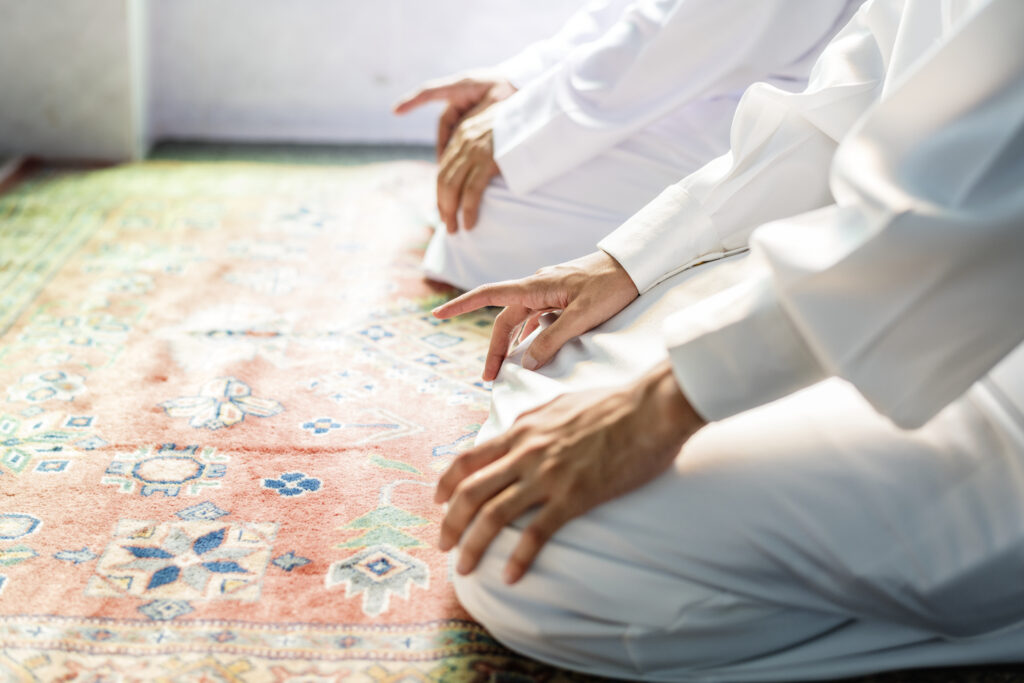
The Power of Islamic Praying for Muslims, Islamic praying, holds a profound significance in the lives of Muslims worldwide. It is not just a ritualistic act, but a spiritual connection with the Almighty, offering solace and tranquility, especially in times of anxiety and distress. In this article, we explore How Islamic Prayer Works, the Islamic Prayer Positions, How to Start a Prayer in Islam and What to Say at the End of Prayer in Islam.
Islamic prayer involves a series of physical and verbal actions performed in a specific manner, following the teachings of the Prophet Muhammad (peace be upon him). It includes various positions such as standing, bowing, prostration, and sitting, symbolizing humility and submission to Allah.
One of the remarkable aspects of Islamic prayer is its ability to alleviate anxiety and stress. The rhythmic movements, recitation of Quranic verses, and supplications during Salah help calm the mind and elevate the soul. It serves as a direct channel to seek guidance, strength, and comfort from the Creator. So Islamic prayer for anxiety Many Muslims resort to it.
Don’t want to go through the translation anymore?
30 free minutes with your qualified Egyptian teacher.
Each position in Islamic prayer holds significance, reflecting different aspects of devotion and submission. From standing in reverence to bowing in humility, and prostrating in complete surrender, every posture reinforces the believer’s connection with Allah and fosters a sense of inner peace.
Starting a prayer in Islam involves cleansing oneself through ablution (Wudu) and facing the Qibla (direction of the Kaaba in Mecca). With a clear intention and a focused heart, the believer begins the prayer by reciting the opening chapter of the Quran, Al-Fatiha, followed by additional verses or chapters.
At the conclusion of the prayer, Muslims offer greetings of peace and blessings upon themselves and the Prophet Muhammad (peace be upon him). This is followed by personal supplications, known as Du’a, where believers can seek forgiveness, guidance, and blessings from Allah.
In conclusion, Islamic prayer is not merely a set of physical actions, but a deeply spiritual practice that provides Muslims with a sense of comfort, tranquility, and connection with the Divine. It serves as a beacon of hope and strength, guiding believers through life’s challenges and uncertainties.
To Know More: Powerful Duas for Your Wishes to Come True
Discover the experiences of our delighted clients who have thoroughly enjoyed utilizing this standout feature.
Alhamdulillah I‘m very pleased with the arabic and Qur’an lessons I receive from teacher Umm Tasneem and I‘m also content with the al-dirassa administration team who were very quick in answering any questions I had. In a month I progressed a lot and I cannot wait to continue my studies with al-dirassa. May Allah reward everyone at al-dirassa.
Verified review - view original
My Qur’an teacher is fantastic, she teaches me in a loving and kind way where I look forward to the lessons and learn so much. My Arabic teacher is equally as nice and has a lot of patience with me, she has great expertise in the field and I’ve progressed really quickly with her. Thank you Al-dirassa!
Verified review - view original

Al-dirassa Institute offers you a gift to help you begin your journey to being fluent in Arabic and learning the Quran.

Al-dirassa Institute offers you a gift to help you begin your journey to being fluent in Arabic and learning the Quran.